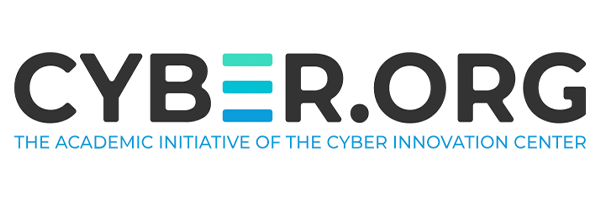Career Pathway Partners
At NWCyber, we work with schools, nonprofits, and organizations to promote programs that guide students and job seekers toward cybersecurity careers. As one of our Career Pathways Partners, you’ll gain visibility for your programs while helping to shape the next generation of cybersecurity professionals.

Partner with NWCyber
Promote Programs
Expand Reach
Resource Share
NWCyber is here to help
High School Counselor FAQ
High school counselors play a crucial role in guiding students toward career pathways in cybersecurity. Understanding the opportunities in this field, including the variety of roles available, the education requirements, and the growing job market, will help you better support students interested in pursuing careers in cybersecurity.
Cybersecurity involves protecting computer systems, networks, and sensitive data from cyber threats and attacks. Professionals in this field work to defend against unauthorized access, data breaches, and other cyber risks, ensuring the security and integrity of information across various sectors, including finance, healthcare, and critical infrastructure.
It's important to clarify that cybersecurity is much more than hacking. While ethical hacking, or penetration testing, is a legitimate career path, the field encompasses a wide range of roles focused on security, risk management, compliance, and data protection. Cybersecurity professionals work to safeguard information and systems, which is a critical responsibility in today’s digital landscape.
Look for students who show a strong interest in technology, problem-solving, and critical thinking. Those who enjoy working with computers, coding, or troubleshooting technical issues may be well-suited for a career in cybersecurity. Encourage them to participate in tech-related clubs, competitions, or workshops to gauge their interest further.
The student pathway typically begins with exploring interests in technology and enrolling in relevant courses. Encourage students to participate in cybersecurity camps or workshops to gain hands-on experience. After high school, they can pursue associate or bachelor’s degrees in cybersecurity or related fields. Certifications such as CompTIA Security+ can also enhance their credentials and marketability.
In Oregon and SW Washington, various colleges and universities offer both 2-year and 4-year programs in cybersecurity. Community colleges like Mount Hood Community College and Portland Community College provide associate degrees and certificates. Four-year institutions, such as Portland State University and the University of Washington, offer bachelor's and master's programs, often with specialized tracks in cybersecurity. Each program equips students with the knowledge and skills needed for various roles in the industry.
Cybersecurity Jobs Requiring a Degree:
Cyber Instructor – BA
Cryptographer – MA
Cyber Defense Incident Responder – not required but BA encouraged
Cyber Forensics Expert – BA
Cybersecurity Engineer – BA
Multi-disciplined Language Analyst – MA
IT Project Manager – BA
Information Systems Security Manager – BA
Software Developer – MA
Cyber Operator – BA
Information Assurance Analyst - BA
Pen Tester – BA
Threat and Warning Analyst – BA
Chief Information Security Officer – MA + certifications
Faciility Security Officer – BA/BS + certifications + security clearance
Cybersecurity Jobs with No Degree – Certs and Experience
Cyber Crime Investigator
Technical Support Specialist
Vulnerability Assessment Analyst – real world experience
System Administrator, BA recommended
System Testing and Evaluation Specialist – certs recommended
Knowledge Manager – BA recommended, not required
Cyber Ops Planner – BA Recommended
Cloud Architect – Certification such as AWS Cloud Architect required
College Advisor FAQ
At the start of enrollment, students should focus on building a strong foundation in core subjects, such as networking, programming, and information security. Engaging in campus organizations, participating in cybersecurity clubs, and seeking mentorship from faculty or professionals in the field can help them gain insights and establish connections. They should also explore opportunities for internships or volunteer work to gain hands-on experience.
One year out from graduation, students should focus on gaining practical experience through internships, co-op programs, or entry-level positions in cybersecurity. They should also work on building their professional network by attending industry events and joining cybersecurity organizations. Preparing for relevant certifications, such as CompTIA Security+, can enhance their qualifications and make them more competitive in the job market.
At graduation, students should have a clear understanding of their career goals and the specific roles/and or industry they wish to pursue in cybersecurity. They should focus on refining their resumes, preparing for job interviews, and actively applying for positions in their areas of interest. Networking with industry professionals and leveraging career services can also help them secure job opportunities.
Essential skills for a career in cybersecurity include strong problem-solving abilities, critical thinking, attention to detail, and a solid understanding of networking and programming concepts. Familiarity with cybersecurity tools and technologies, as well as strong communication skills, are also important for effectively collaborating with teams and conveying security-related information to non-technical stakeholders.
Students can stay current by following industry news, participating in webinars and conferences, and engaging with professional organizations. Encouraging students to pursue certifications and attend workshops will help them acquire the latest skills and knowledge. Additionally, subscribing to cybersecurity journals and online forums can provide valuable insights into emerging trends and best practices.
Cybersecurity offers a variety of career paths, including roles such as security analyst, penetration tester, cybersecurity engineer, incident responder, and compliance officer. Other specialized positions include cyber forensics expert, cryptographer, and chief information security officer (CISO). Students should explore different roles to find the best fit for their skills and interests.
Yes, many organizations offer internships specifically for cybersecurity students. Encourage students to seek internships with local companies, government agencies, or nonprofit organizations that focus on information security. Many universities also have partnerships with industry players to facilitate internships, so students should take advantage of those resources.
Cybersecurity Jobs Requiring a Degree:
Cyber Instructor – BA
Cryptographer – MA
Cyber Defense Incident Responder – not required but BA encouraged
Cyber Forensics Expert – BA
Cybersecurity Engineer – BA
Multi-disciplined Language Analyst – MA
IT Project Manager – BA
Information Systems Security Manager – BA
Software Developer – MA
Cyber Operator – BA
Information Assurance Analyst - BA
Pen Tester – BA
Threat and Warning Analyst – BA
Chief Information Security Officer – MA + certifications
Faciility Security Officer – BA/BS + certifications + security clearance
Cybersecurity Jobs with No Degree – Certs and Experience
Cyber Crime Investigator
Technical Support Specialist
Vulnerability Assessment Analyst – real world experience
System Administrator, BA recommended
System Testing and Evaluation Specialist – certs recommended
Knowledge Manager – BA recommended, not required
Cyber Ops Planner – BA Recommended
Cloud Architect – Certification such as AWS Cloud Architect required






